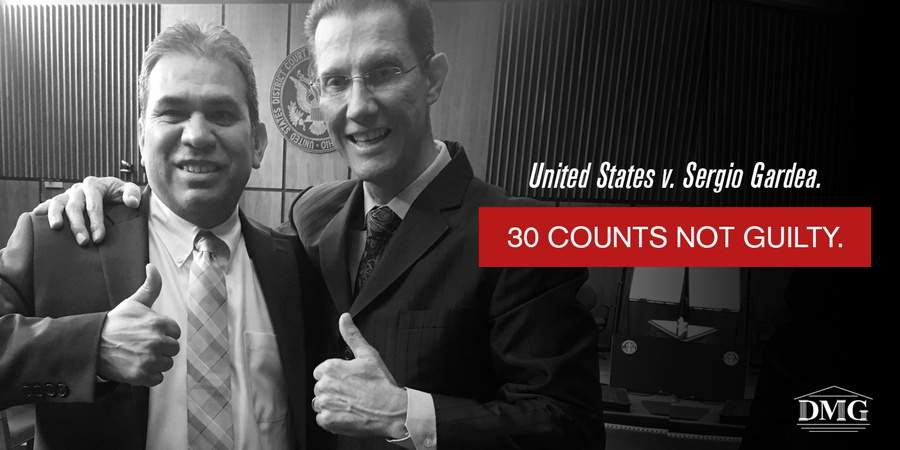United States v. Sergio Gardea. Tax preparer found not guilty on all 30 counts of preparing false tax returns following a 2-weeks jury trial today. Mr. Gardea was represented by Miami criminal tax lawyer David M. Garvin.
Category archives: Criminal Tax Cases
The following are criminal tax cases:
RSS feed of Criminal Tax Cases
Selecting a Criminal Attorney, When Winning is Your Only Option, Revisited
Written by on in Criminal Tax Cases, Tax Audits, Appeals & Litigation, When Winning is Your Only Option.
Selecting a Criminal Attorney: If you learned that you were the target of a federal investigation, who would you call? How would you select a lawyer to represent you? In October of 2016 this blog discussed a number of factors that affect the outcome of federal criminal jury trials. This subject matter is revisited with newly published data by the United States District Courts.
Does a Green Card Holder Have to File U.S. Income Tax Returns and FBARs
Written by on in Criminal Tax Cases.
A citizen of the United Kingdom held a green card in the United States. He was indicted for not filing U.S. income tax returns and FBARs. The taxpayer challenged the constitutionality of the indictment.
Highly Skilled Tax Attorney and Sophisticated Businessman, Was Found Guilty of 16-Counts
Written by on in Criminal Tax Cases.
The evidence at trial fairly established that Lynch possessed superior knowledge of tax and corporate laws which he used to keep Internal Revenue Service ("IRS") agents from being able to collect taxes due for several entities that related to a collection of businesses related to indoor ice skating - by shifting assets and employees among several entities.
Rule 7(d) of the Federal Rules of Criminal Procedure authorizes the trial court to strike surplusage from the indictment.
The Fifth Amendment Does Not Protect Taxpayers From Being Forced to Produce Certain Required Records
Written by on in Criminal Tax Cases.
The Fifth Amendment protects individual taxpayers from being compelled to testify when such testimony is incriminating. This rule has been held to apply to the records in the custody and control of the taxpayer. However, when the taxpayer is required to maintain the records for non-law enforcement reasons that are public in nature, the Required Records Doctrine authorizes the government to subpoena such records. This is recognized as an exception to the Fifth Amendment.
Corporate Structure Did Not Protect Lawyer From Payroll Tax Conviction
Written by on in Criminal Tax Cases.
I person responsible for paying over payroll taxes may not escape responsibility through the use of corporate formalities and structures.
Taxpayers who find that they are the target of an IRS tax investigation for possible criminal tax violations are presented with difficult choices that often affect the ultimate outcomes of their cases.
Court Holds that Definition of "Willful" Is Not The Same In FBAR Civil Penalty Case As In Criminal Tax Cases
Written by on in Criminal Tax Cases.
Defendants in a FBAR penalty case argued that the Chief Counsel of the Internal Revenue Service has opined that the willfulness standard for purposes of 31 U.S.C. § 5321 is the same as the criminal standard. IRS CCA 200603026. However, the Court held that Chief Counsel Advice may not be used or cited as precedent. 26 U.S.C. § 6110(k)(3) Defendant also argued that the IRS manual stated that the definition of "willfully" was the same for criminal and civil cases. The Court held that the IRS was not bound by statements made in its manual. The Court held that the definition of "willfully" included reckless disregard for the tax laws.
Court Finds That the Statute of Limitations in a Section 7202 Tax Case Begins When Willfulness Arises.
Written by on in Criminal Tax Cases.
In general the Internal Revenue Code provides that no action may be maintained more than six years after the commission of a criminal tax violation.
However, the Court has ruled that the statute does not necessarily begin when the tax return was filed or should have been filed.









